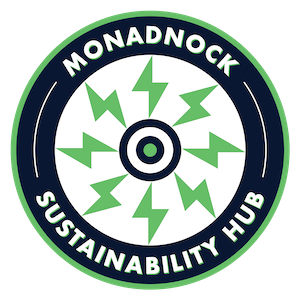Solar energy had another banner year in 2015, not only in clean power production but in adding 35,000 new jobs. That adds up to over 209,000 solar jobs in the US which is three times coal mining. The pace of solar job growth is one of the fastest, doubling since 2010.
What makes this more impressive is that solar is still a small part of our electricity supply (1% compared to coal at over 35%). But with the advent of more energy storage options it is poised to grow much faster. Grid connected energy storage is rapidly moving from research & development into the market with 900 mega watts of projects projected to come on line worldwide in 2016. Energy storage solves the weak link for solar by making it a 24/7 electricity source, instead of only when the sun shines!
Since the sun shines everywhere, even though there are sunnier places, it really doesn’t make sense to move electricity over long distances, since line transmission losses in our grid range from 8 to 18 %. Solar is easily produced anywhere since the fuel is delivered free daily and once it can be stored it means the old dirty dangerous electricity world is history.
We’re very excited to announce not only a significant new solar installation in Keene by a local company but the first of a new type of solar project. It lets local citizens have a stake, much like community supported agriculture, its called Community Supported Solar.
The Monadnock Food Co-op (Co-op) will be the host of the first locally owned community supported solar (CSS) project in the Monadnock region. The 43.5 kW photovoltaic (PV) project will cover the available roof area of the Co-op. The initiative started two years ago with collaboration between The Monadnock Sustainability Network (MSN) and Antioch University New England. A dedicated steering committee of local citizens then worked with the Co-op on this first CSS project. A company was formed by a group of local investors to provide the Co-op with clean, locally harvested electricity and plans to sell the PV system to the Co-op within ten years. The predicted annual power output of 48,000 kWh/year is based on the actual production of the Brattleboro Food Co-op’s PV system. Both co-ops relied on the Keene based design & installation firm Solar Source.
Currently most community solar projects are owned and controlled by developers or utilities. Since this is locally developed, funded, owned and controlled, it is a truly community supported solar project and hopefully the first of many. MSN undertook this community supported solar initiative as part of its mission to make the region more sustainable. With the support of grants from the New England Grassroots Environment Fund, MSN managed the initial Antioch UNE research and the formation of the steering committee for the Co-op project. The goal was to develop a community supported solar model that can be used by others to pursue a locally owned, clean, renewable energy system on their school, CSA, church or other site in their community.
The NH Community Supported Solar Guide will explain and provide insights and information for those who want to learn about community solar (CS) and how to produce their own power in their community. This comprehensive guide is available (expected release March 1, 2016) to members of MSN. For those who decide to pursue locally-owned CSS, there is a menu of support and legal documents explained in the guide, including: LLC agreement; tax equity and community funding agreements; lease agreement; Purchase Power Agreement (PPA); Engineering, Procurement and Contract documents as well as cash flow and return on investment spreadsheet, community/investor presentations and communications information. Consulting services are also described.
Updates on the Co-op project will be posted on the MSN site (greenmonadnock.org) which will also have information on the NHCSS Guide.
John Kondos is a founder of Home-Efficiency Resources, the Monadnock Sustainability Network (whose mission is to promote credible, sustainable practices in the region) and the Monadnock chapter of Citizens Climate Lobby.
